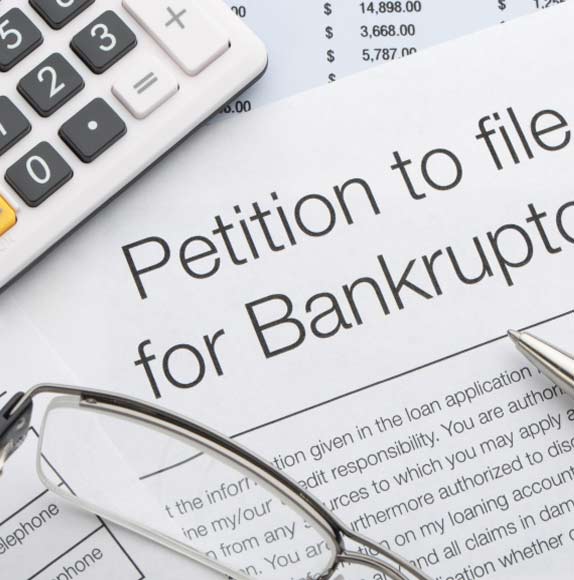1. You Have To Be Broke Or Not Working To File Bankruptcy.
Not true. You do not need to be out of work or totally broke to file bankruptcy. Most individuals filing for bankruptcy are working and several are high wage earners.
2. Filing For Bankruptcy Will Ruin My Credit Score.
Not true. Most likely, someone considering bankruptcy already has a low credit score due to being late on their payments, having too much debt and the like. In many cases, the filing of a bankruptcy will result in a higher credit score within a year after filing.
3. You Need To Deplete Your Assets Before Filing Bankruptcy.
Not true. Too many individuals go through their savings and retirement accounts in an attempt to pay off their debt, yet still end up needing to file bankruptcy. In most cases, those assets could have been protected in the bankruptcy filing. Therefore, you are better off consulting an attorney early on to discuss your level of assets so as to determine whether they can be retained after the filing of a bankruptcy.
4. You Will Lose Your House If You File Bankruptcy.
Not true. A person filing bankruptcy can keep their house so long as they can afford to make the mortgage payments. If the house is worth more than the outstanding mortgage, the Federal or Massachusetts exemption (Declaration of Homestead) can most likely protect the value in the house.
5. You Can File Bankruptcy But Do Not Have To Include Any Credit Cards That Are Not Overdue.
Not true. You cannot pick and choose which debts to include in your bankruptcy. If the credit card has a zero balance, it is not currently a debt and will not need to be included in the bankruptcy. On the other hand, if it has a balance, it is a debt (even if you are current on the minimum payments) and it must be included.
6. If You Have So Much Debt That You Need To File For Bankruptcy, You Certainly Can’t Afford To Pay For An Attorney.
Not true. We understand the financial situation of our clients and do not require all of the fees up front. We can also advise as to debts that you no longer need to keep paying if you have decided to file bankruptcy, thereby freeing up money from your monthly budget.
7. If One Of Your Creditors Has Obtained A Court Judgment Against You, You Cannot Include That Debt In My Bankruptcy.
Not true. Even if creditors have gone to court against you, and even if they have gotten judgments against you, the debts can be included in the bankruptcy and the filing of the bankruptcy will stop all collection activities, including the court proceedings.
8. If You Need To File For Bankruptcy, It Must Be Because You Did Something Wrong Or It Was Your Fault.
Not true. Most people who file for bankruptcy are forced to do so through no fault of their own. Medical problems, divorce and loss of income are common reasons why people file. In addition, over-extending on credit cards to pay everyday living expenses is also a common reason for filing.
9. If You Are Married, Both You And Your Spouse Must File.
Not true. If the debt is only in your name, then you do not need to file a joint bankruptcy petition. Often, however, both spouses are liable for the debt. In that case, a joint filing would be beneficial as otherwise a creditor may continue collection action against your spouse.
Discuss How Bankruptcy Could Benefit You
To discover more about bankruptcy misconceptions, contact the Law Offices of Ira C. Yellin, LLC, in Franklin, by calling 508-528-8885 or filling out our online contact form.
When representing consumer debtors in connection with bankruptcy, the Law Offices of Ira C. Yellin, LLC, is a debt relief agency as defined by the Bankruptcy Code, 11 USC § 101(12A).

